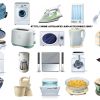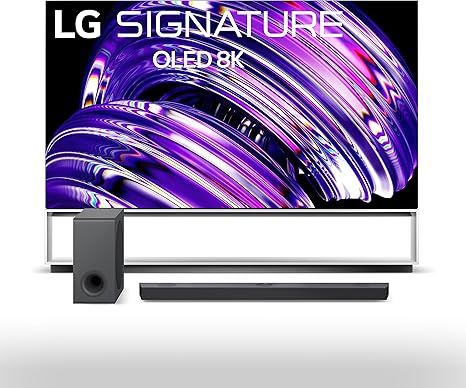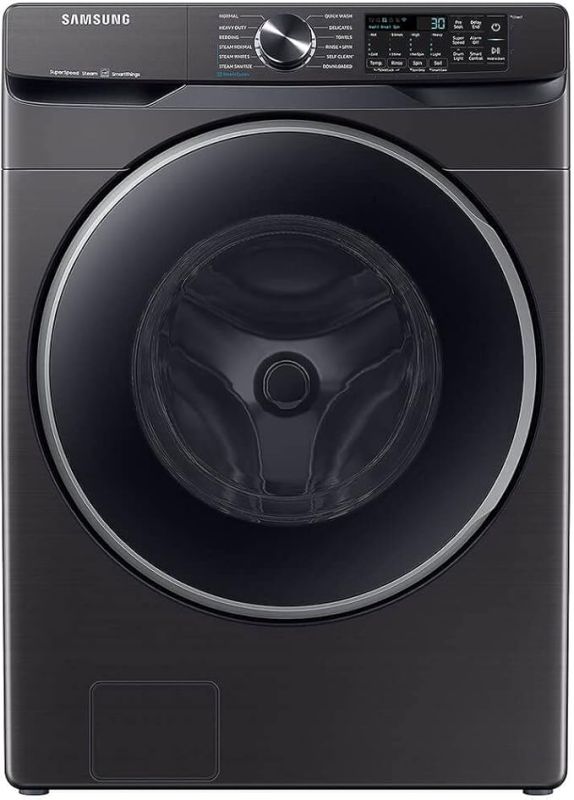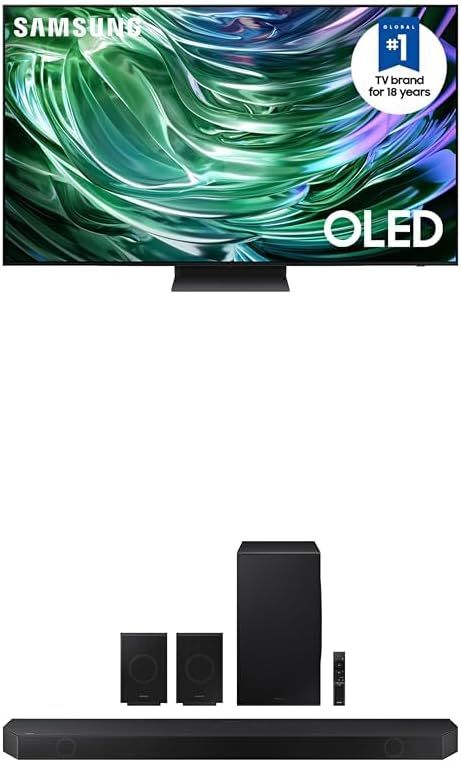Ultimate Guide to Air Purifiers for Allergy Sufferers

- Why Air Purifiers Help With Allergies
- How Air Purifiers Work
- Which Features Matter Most for Allergy Relief
- 1. True HEPA (not HEPA-type)
- 2. Airflow and CADR Ratings
- 3. Noise Levels
- 4. Filter Replacement Costs
- 5. Sensor Accuracy + Auto Mode
- 6. Ozone-Free Certification
- Where to Place an Air Purifier for Best Results
- Ideal Locations:
- Avoid placing it:
- TOP 10 BEST AIR PURIFIERS FOR ALLERGY RELIEF (WITH PRICES, PROS, CONS, REVIEWS)
- Comparison Table of the 10 Best Models
- DETAILED REVIEWS OF TOP MODELS
- 1. LEVOIT Core 300S - Best Quiet Air Purifier for Bedrooms
- Pros
- Cons
- User Feedback
- 2. Coway Airmega AP-1512HH - Best for Medium Rooms
- Pros
- Cons
- User Feedback
- 3. Blueair Blue Pure 211+ - Best for Large Rooms
- Pros
- Cons
- User Feedback
- 4. Honeywell HPA300 - Strong CADR for Allergies
- Pros
- Cons
- User Feedback
- 5. Winix 5500-2 - Best Value Air Purifier
- Pros
- Cons
- User Feedback
- 6. Dyson TP07 - Premium Smart Purifier with Fan
- Pros
- Cons
- User Feedback
- 7. GermGuardian AC4825 - Best for Tight Budgets
- Pros
- Cons
- User Feedback
- 8. Alen BreatheSmart Flex - Best Designer Option
- Pros
- Cons
- User Feedback
- 9. Medify MA-40 - Strong HEPA H13 Filtration
- Pros
- Cons
- User Feedback
- 10. Shark HP102 - Best Compact Allergy Purifier
- Pros
- Cons
- User Feedback
- How to Choose the Right Air Purifier for Your Home
- For Bedrooms
- For Living Rooms
- For Homes with Pets
- For Allergy Season
- For Smoke Sensitivity
- Maintenance Tips for Better Allergy Relief
Improving indoor air quality is one of the most effective ways to reduce allergy symptoms at home. Dust mites, pollen, mold spores, pet dander, and smoke particles stay suspended in the air much longer than most people realize. If you wake up congested, sneeze when sunlight hits the room, or feel uncomfortable during allergy season, a high-quality air purifier can make an enormous difference.
This long, practical guide explains how air purifiers help with allergies, which filtration technologies actually work, what features matter, and how to choose the right model based on room size, budget, and specific sensitivities. You will also find a comparison of 10 top-rated models with prices, pros, cons, and user impressions to make the decision easier.
Why Air Purifiers Help With Allergies
Air purifiers remove airborne allergens before they reach your nose, eyes, or lungs. The most important allergen sources are:
-
Pollen from trees, grasses, and weeds
-
Dust mites and their waste particles
-
Pet dander
-
Mold spores
-
Smoke particles
-
VOCs (paint, furniture adhesives, cleaning chemical fumes)
People often clean surfaces but forget that most allergens float, especially microscopic particles under 2.5 microns. These remain suspended for hours unless captured by a filter with enough airflow and fine filtration capability.
How Air Purifiers Work
Air purifiers move air through one or more filters using a fan. The most effective models rely on:
-
True HEPA filters - remove 99.97% of particles ≥0.3 microns
-
Activated carbon filters - absorb odors, smoke, VOCs
-
Pre-filters - catch hair and large dust, extending HEPA life
-
UV-C or PCO modules (optional) - help reduce bacteria and mold growth
-
High CADR ratings - ensure strong airflow and fast allergen removal
For allergy relief, the combination of HEPA + good CADR is the key.
Which Features Matter Most for Allergy Relief
When choosing an air purifier for allergies, focus on these essential factors:
1. True HEPA (not HEPA-type)
Some cheaper purifiers advertise "HEPA-like" or "HEPA-type" filters, which are not standardized. They often stop only ~85-90% of fine particles. For real allergy relief, you need:
-
True HEPA or HEPA H13/H14
These capture pollen, mold spores, dust mites, and smoke far more efficiently.
2. Airflow and CADR Ratings
CADR measures how much clean air the purifier delivers per minute. Higher CADR means faster cleaning. For example:
| Room Size | Recommended CADR |
|---|---|
| Bedroom (150 sq ft) | 100-150 |
| Living room (300 sq ft) | 200-250 |
| Large open areas (500+ sq ft) | 300+ |
3. Noise Levels
For bedrooms or offices, choose models that stay under:
-
25-30 dB on low
-
50 dB on medium
Advanced models use brushless motors and aerodynamic air channels for quieter operation.
4. Filter Replacement Costs
HEPA filters last 6-12 months depending on dust levels. Activated carbon may need more frequent changes if you have heavy odors or smoke.
5. Sensor Accuracy + Auto Mode
Good sensors detect:
-
PM2.5 particles
-
VOC levels
-
Overall air quality
They automatically adjust fan speed to maintain clean air 24/7.
6. Ozone-Free Certification
For allergy sufferers, avoid models that generate ozone. Look for:
-
"Ozone-free"
-
"CARB-certified" (safe for California standards)
Where to Place an Air Purifier for Best Results
Even the best purifier won't perform well if placed incorrectly.
Ideal Locations:
-
Near the bed (for nighttime allergies)
-
In the living room
-
Next to areas with dust or pet activity
-
Near windows during pollen season
-
In basements affected by mold or humidity
Avoid placing it:
-
Inside cabinets
-
Behind furniture
-
Too close to walls blocking airflow
-
Directly next to humidifiers (moisture can damage filters)
TOP 10 BEST AIR PURIFIERS FOR ALLERGY RELIEF (WITH PRICES, PROS, CONS, REVIEWS)
Below is a detailed comparison table followed by individual reviews.
Comparison Table of the 10 Best Models
| Model | Price (USD) | Coverage Area | Filter Type | Noise | Notable Advantage |
|---|---|---|---|---|---|
| LEVOIT Core 300S | $149 | 219 sq ft | H13 HEPA + Carbon | 24 dB | Quietest in class |
| Coway Airmega AP-1512HH | $229 | 361 sq ft | True HEPA + Carbon | 24-54 dB | Very efficient sensors |
| Blueair Blue Pure 211+ | $299 | 540 sq ft | HEPA + Pre-filter | 31-56 dB | Best for large rooms |
| Honeywell HPA300 | $269 | 465 sq ft | True HEPA | 40-60 dB | Strong CADR |
| Winix 5500-2 | $169 | 360 sq ft | HEPA + Washable Carbon | 27-55 dB | Washable filters save money |
| Dyson Purifier Cool TP07 | $549 | 400 sq ft | HEPA H13 | 28-61 dB | Cooling + purification |
| GermGuardian AC4825 | $99 | 167 sq ft | HEPA + UV-C | 40-55 dB | Budget-friendly |
| Alen BreatheSmart Flex | $349 | 700 sq ft | True HEPA | 25-50 dB | Designer look + quiet |
| Medify MA-40 | $289 | 420 sq ft | H13 HEPA | 29-66 dB | Strong filtration |
| Shark HP102 | $149 | 300 sq ft | HEPA | 20-46 dB | Best compact option |
DETAILED REVIEWS OF TOP MODELS
1. LEVOIT Core 300S - Best Quiet Air Purifier for Bedrooms
Price: $149
Coverage: 219 sq ft
Filtration: H13 HEPA + Activated Carbon
Noise: 24 dB (extremely quiet)
Pros
-
Whisper-silent Sleep Mode
-
Accurate sensors
-
Great for pollen and pet allergies
-
Compact and modern
Cons
-
Best for small rooms
-
Carbon filter is small
User Feedback
People love how silent it is. Many reviewers with pet allergies report noticeably easier breathing and fewer morning symptoms after just a few nights.
2. Coway Airmega AP-1512HH - Best for Medium Rooms
Price: $229
Coverage: 361 sq ft
Filtration: True HEPA + Deodorization
Noise: 24-54 dB
Pros
-
Excellent auto mode
-
Very energy efficient
-
Strong CADR
-
Long-lasting filters
Cons
-
Slightly bulky
-
Replacement filters cost more than average
User Feedback
Praised for its smart sensors and strong performance during allergy season. Many mention less dust buildup and improved sleep.
3. Blueair Blue Pure 211+ - Best for Large Rooms
Price: $299
Coverage: 540 sq ft
Filtration: HEPA + PreFilter
Noise: 31-56 dB
Pros
-
Huge airflow
-
Unique washable fabric pre-filter
-
Extremely fast allergen removal
Cons
-
No air quality display
-
Bigger than competitors
User Feedback
Perfect for open layouts. Users notice cleaner-smelling air and reduced sneezing in under an hour.
4. Honeywell HPA300 - Strong CADR for Allergies
Price: $269
Coverage: 465 sq ft
Noise: 40-60 dB
Pros
-
Very high CADR
-
Trusted brand
-
Good for heavy dust
Cons
-
Louder than most
-
Uses more electricity
User Feedback
A top choice for severe allergies. Users consistently mention visible dust reduction.
5. Winix 5500-2 - Best Value Air Purifier
Price: $169
Coverage: 360 sq ft
Filtration: True HEPA + Washable Carbon + PlasmaWave
Noise: 27-55 dB
Pros
-
Washable charcoal filter
-
Affordable maintenance
-
Great CADR
Cons
-
Design looks basic
-
PlasmaWave may worry ozone-sensitive users (though certified safe)
User Feedback
Families with pets especially love this model thanks to odor reduction and less pet dander on furniture.
6. Dyson TP07 - Premium Smart Purifier with Fan
Price: $549
Coverage: 400 sq ft
Noise: 28-61 dB
Pros
-
Beautiful tower design
-
Purifies and cools
-
Excellent filtration
-
App + voice controls
Cons
-
Expensive
-
Filter replacement is pricey
User Feedback
Users mention easier breathing and reduced pet smells. Ideal for modern homes.
7. GermGuardian AC4825 - Best for Tight Budgets
Price: $99
Coverage: 167 sq ft
Noise: 40-55 dB
Pros
-
Very affordable
-
Includes UV-C
-
Easy filter replacement
Cons
-
Not ideal for big rooms
-
Louder on high
User Feedback
Great for small bedrooms or dorms. Many say it made allergy season bearable.
8. Alen BreatheSmart Flex - Best Designer Option
Price: $349
Coverage: 700 sq ft
Noise: 25-50 dB
Pros
-
Quiet yet powerful
-
Long-lived HEPA filter
-
Stylish housing options
Cons
-
Expensive upfront
-
Replacement filters cost more
User Feedback
Users love how quiet and attractive it is, especially for living rooms.
9. Medify MA-40 - Strong HEPA H13 Filtration
Price: $289
Coverage: 420 sq ft
Noise: 29-66 dB
Pros
-
Medical-grade HEPA
-
High airflow
-
Modern design
Cons
-
Loud at max speed
-
Filters cost more over time
User Feedback
Ideal for people with severe allergies or smoke sensitivity.
10. Shark HP102 - Best Compact Allergy Purifier
Price: $149
Coverage: 300 sq ft
Noise: 20-46 dB
Pros
-
Very quiet
-
Compact size
-
Good sensor accuracy
Cons
-
Smaller carbon filter
-
Best used in bedrooms or offices
User Feedback
Loved for its quietness and effective allergen removal in small spaces.
How to Choose the Right Air Purifier for Your Home
For Bedrooms
Choose quiet units under 30 dB with dimmable displays.
Best picks: Levoit 300S, Shark HP102
For Living Rooms
Large airflow is essential.
Best picks: Blueair 211+, Honeywell HPA300, Alen Flex
For Homes with Pets
Look for strong odor reduction.
Best picks: Winix 5500-2, Medify MA-40
For Allergy Season
Prioritize CADR + True HEPA.
Best picks: Coway AP-1512HH, Honeywell HPA300
For Smoke Sensitivity
Choose large carbon filters.
Best picks: Blueair 211+, Medify MA-40
Maintenance Tips for Better Allergy Relief
-
Replace HEPA filters on time
-
Vacuum the pre-filter monthly
-
Keep doors/windows closed during pollen season
-
Clean the purifier intake
-
Run the purifier 24/7 during peak allergy months








